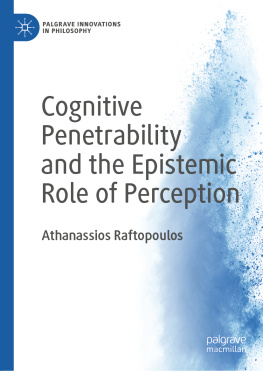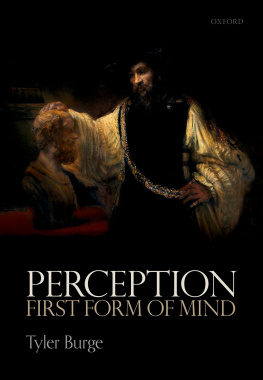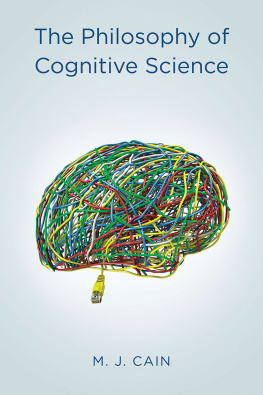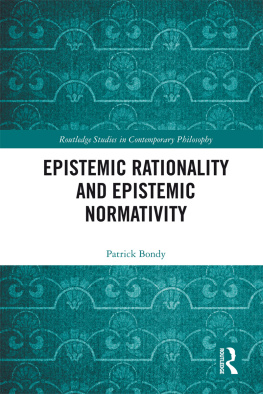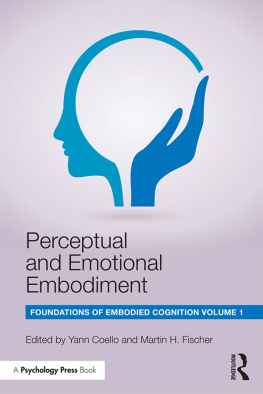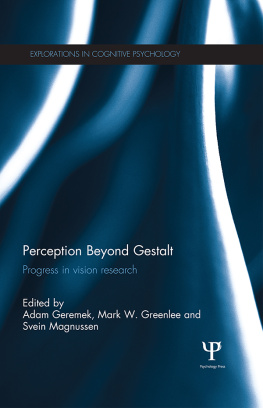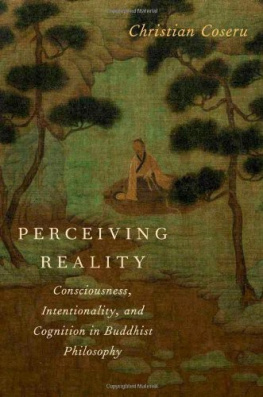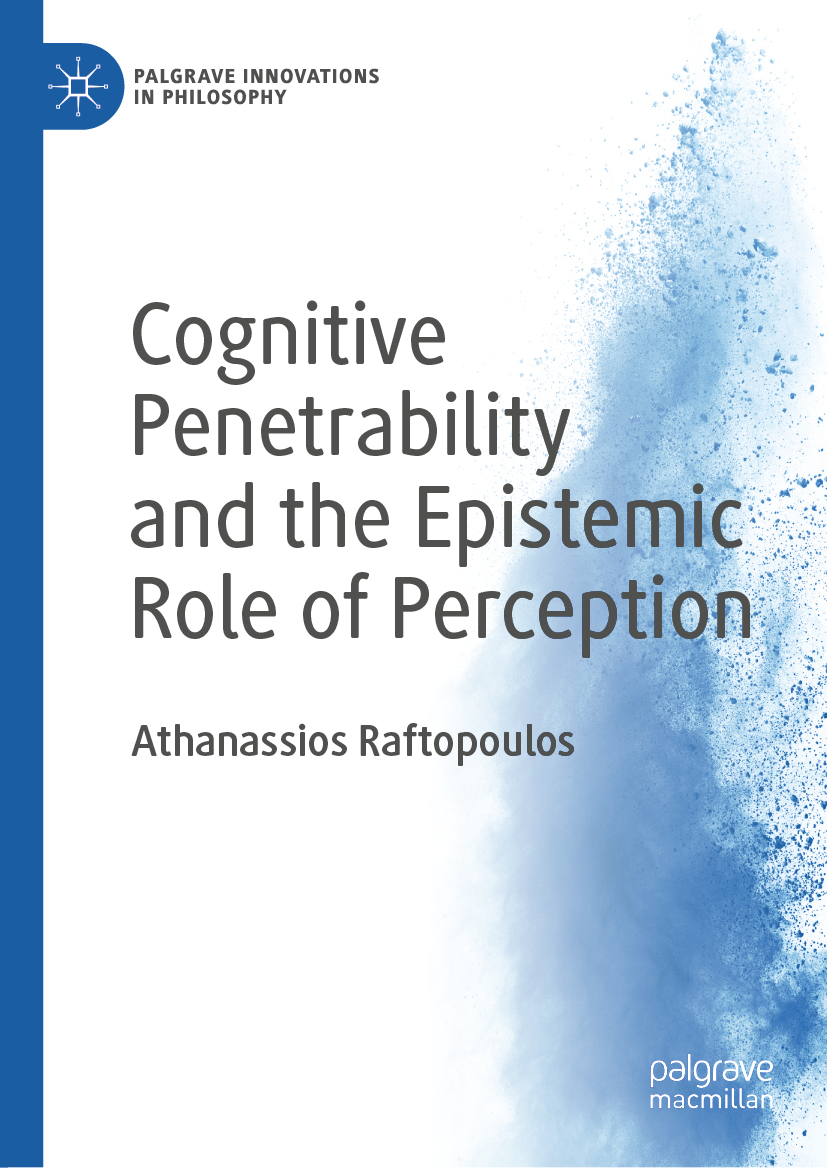Palgrave Innovations in Philosophy
Series Editors
Vincent Hendricks
University of Copenhagen, Copenhagen, Denmark
Duncan Pritchard
University of Edinburgh, Edinburgh, UK
Palgrave Innovations in Philosophy is a new series of monographs. Each book in the series will constitute the new wave of philosophy, both in terms of its topic and the research profile of the author. The books will be concerned with exciting new research topics of particular contemporary interest, and will include topics at the intersection of Philosophy and other research areas. They will be written by up-and-coming young philosophers who have already established a strong research profile and who are clearly going to be leading researchers of the future. Each monograph in this series will provide an overview of the research area in question while at the same time significantly advancing the debate on this topic and giving the reader a sense of where this debate might be heading next. The books in the series would be of interest to researchers and advanced students within philosophy and its neighboring scientific environments.
More information about this series at http://www.palgrave.com/gp/series/14689
Athanassios Raftopoulos
Department of Psychology, University of Cyprus, Nicosia, Cyprus
Palgrave Innovations in Philosophy
ISBN 978-3-030-10444-3 e-ISBN 978-3-030-10445-0
https://doi.org/10.1007/978-3-030-10445-0
Library of Congress Control Number: 2018965225
The Editor(s) (if applicable) and The Author(s) 2019
This work is subject to copyright. All rights are solely and exclusively licensed by the Publisher, whether the whole or part of the material is concerned, specifically the rights of translation, reprinting, reuse of illustrations, recitation, broadcasting, reproduction on microfilms or in any other physical way, and transmission or information storage and retrieval, electronic adaptation, computer software, or by similar or dissimilar methodology now known or hereafter developed.
The use of general descriptive names, registered names, trademarks, service marks, etc. in this publication does not imply, even in the absence of a specific statement, that such names are exempt from the relevant protective laws and regulations and therefore free for general use.
The publisher, the authors and the editors are safe to assume that the advice and information in this book are believed to be true and accurate at the date of publication. Neither the publisher nor the authors or the editors give a warranty, express or implied, with respect to the material contained herein or for any errors or omissions that may have been made. The publisher remains neutral with regard to jurisdictional claims in published maps and institutional affiliations.
Cover illustration: Bashutskyy shutterstock.com
This Palgrave Macmillan imprint is published by the registered company Springer Nature Switzerland AG
The registered company address is: Gewerbestrasse 11, 6330 Cham, Switzerland
Preface
In this book, I aim, first, to analyze the concept of cognitive penetrability (CP). To do so, I discuss the epistemic role of perception in grounding perceptual beliefs and the importance of this role for the discussions about CP. I reframe the problem of CP so as to take into account the repercussions of the cognitive effects on perception for the epistemic role of perception. I contend that cognitive effects on perception constitute cases of CP only if (a) they affect perceptual processing in a direct manner, and (b) they affect the epistemic role of perception. I argue that early vision is not CP because it is neither affected directly by cognition, nor do any cognitive effects affect its epistemic role.
Second, I examine in detail the processes of late vision and their role in visual perception. This is important because although it is widely argued that early vision is CI, there is, in addition to early vision, a later perceptual stage of visual processing, namely, late vision. Unlike early vision, late vision is not much discussed in the literature. Questions that arise in that respect concern the processes and role of late vision processes, and the ways these processes interrelate (if at all) with cognition. I argue that late vision is CP because it is affected directly by cognitive states and its epistemic role is affected by cognition as well. If cognition affects late vision, an explanation must be given as to how cognitive states could affect perceptual processes in view of the fact that perceptual states have iconic content, whereas cognitive states have symbolic/conceptual content; given this significant difference in representational format, how could cognition interact with perception?
There are several differences that conjunctively differentiate this book from other accounts about the CP of perception and its epistemic impact. First, in the literature, visual perception is usually treated invariably as a unified process and the discussions pertain to whether visual perception is CP or not, despite Pylyshyns (1999) early warnings that visual perception as a whole should be distinguished from early vision and that the claim about CI concerns early vision and not visual perception as a whole. In this book, I divide visual perception into two parts, namely early vision and late vision. The effects of cognition on perception are analyzed and discussed, thereby, in terms of the ways cognition affects early vision and late vision separately. It turns out that cognition not only affects early vision differently from late vision, but also affects the respective epistemic roles differently. This has important repercussions for the discussions concerning CP that the other books miss because they do not differentiate between early and late vision.
Second, there are various definitions of CP in the literature. Usually, these definition state that a perceptual process is CP if it is directly affected by cognition, where this directly effects is explicated in various ways. Some more recent accounts of CP, however, introduce a new condition with a pragmatic, consequentialist flair, namely that a perceptual process is CP if the cognitive effects have some important or interesting philosophically speaking consequences concerning the epistemic role of perception, namely its role as a justifier of perceptual beliefs. The relations between the two conditions for CP are not discussed and they are usually left to run in parallel. In this book, I examine closely their interrelations and argue that they should be treated as the two faces of the same coin with the one face bootstrapping the other.
Although, third, early vision is discussed sometimes, late vision is not discussed and analyzed at all. There are some researchers, both philosophers and cognitive scientists, who think that late vision, owing to cognitive influences, is not a perceptual stage properly speaking. I argue that despite the cognitive influences, late vision is a perceptual stage.
Finally, among those who espouse the view that cognition affects perception, there are those who think that cognition can affect perception because both have conceptual/symbolic contents. There is a significant part of researchers, however, who think that cognition affects perception even though perceptual states have iconic/analog contents, whereas cognitive states have conceptual/symbolic contents. No explanation has been given as to how analog contents could affect symbolic contents. In fact, some researchers argue that exactly because of the difference in representational format, cognition and perception could not interact in a way that entails the CP of perception. Here, I provide an account of how cognitive states could affect perceptual states in a way that entails that late vision is CP.

